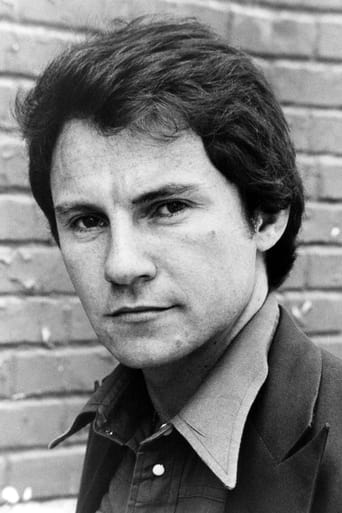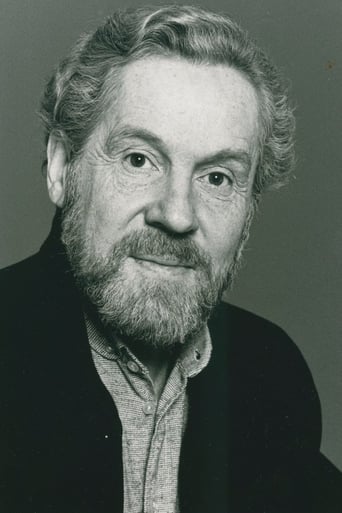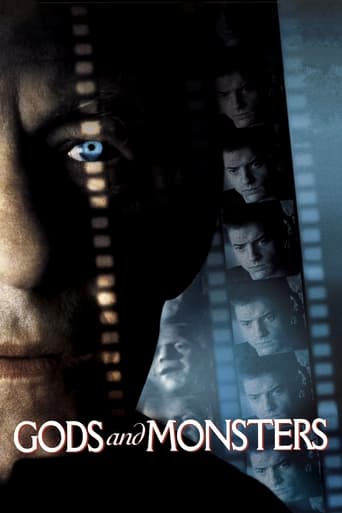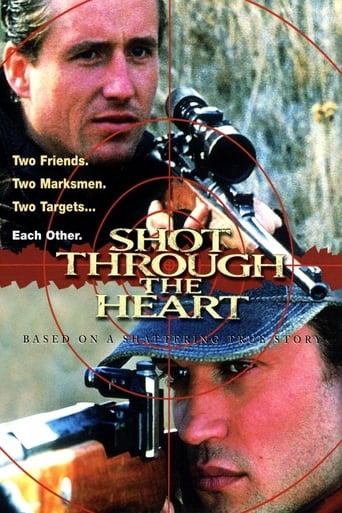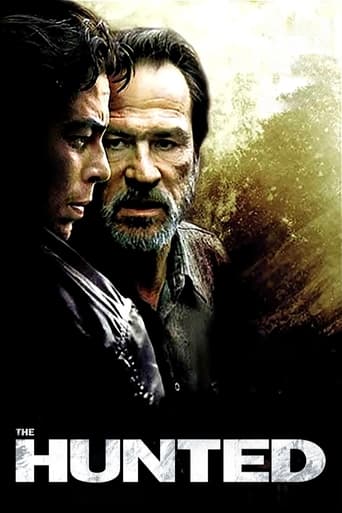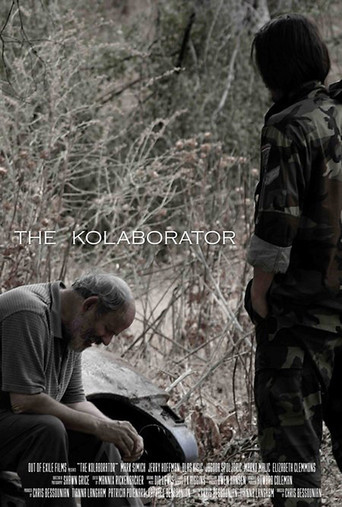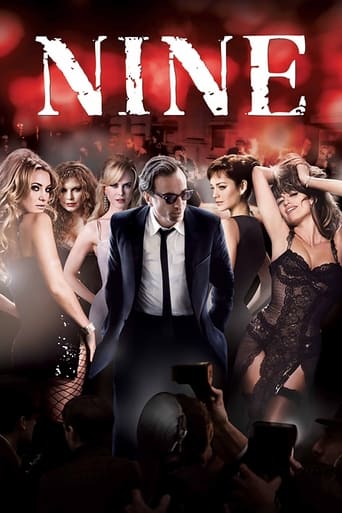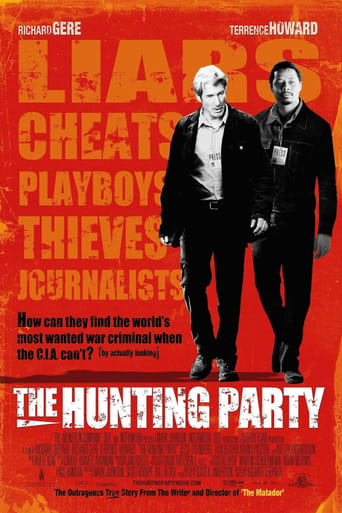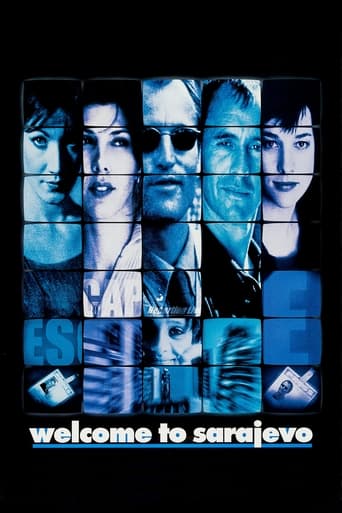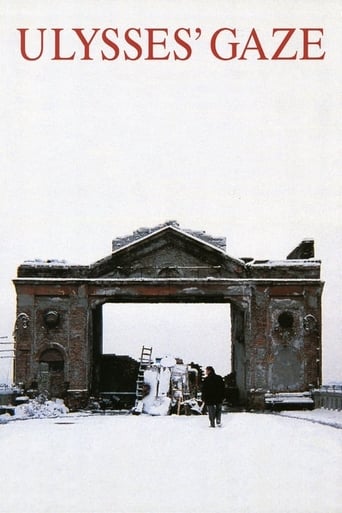
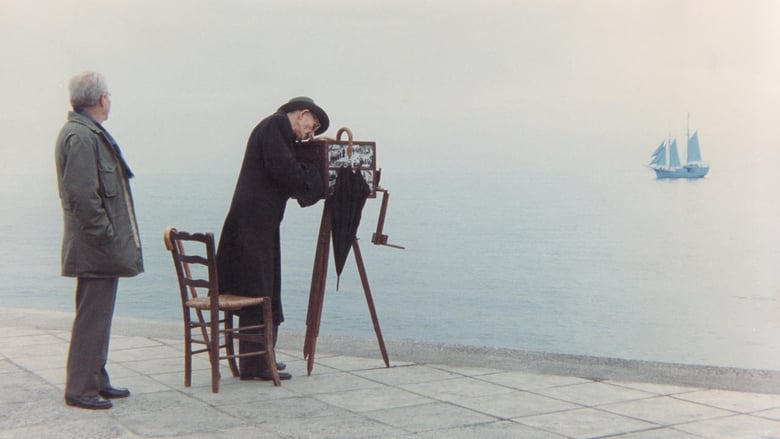
Ulysses' Gaze (1995)
An exiled filmmaker finally returns to his home country where former mysteries and afflictions of his early life come back to haunt him once more.
Watch Trailer
Cast


Similar titles
Reviews
You might think that in making a film about Greek cinema or at least about a fellow film-maker Angelopolous would have made his greatest masterpiece but "Ulysses' Gaze" may be his most lugubrious film. Perhaps working mostly in English didn't help or the one-note performance of Harvey Keitel as the exiled film-maker returning to his homeland in search of 3 reels of lost film by the Manakia Brothers was to blame.The structure is just as complex as anything by Angelopolous as Keitel moves back and forth in time but he also makes for an uneasy observer of Balkan history and the conflict in Sarajevo and ultimately the material feels less profound than I'm sure the director intended; there's only so much old ground he can cover. It isn't a bad film; I don't think Angelopolous could make a bad film if he tried and visually it is very impressive. Rather it is simply a great disappointment from a man who can justifiably lay claim to being one of the ten greatest directors in all of cinema.
On the surface, this is deeply flawed; there's some awkward dialogue, Harvey Kietel is OK, not amazing, the female characters are thin. But it's so damn full of breathtaking images, brave cinematic choices, multi-minute long shots, and a heart rending climax, that the flaws don't seem important some how. The story: A Greek film director caught in his own mid-life artistic and personal crisis goes on an odyssey to find lost footage by Greece's first filmmakers, traveling through the Balkans and revisiting his own life in the process. I can certainly understand the mixed reviews. This isn't an easy film, and if watched in the wrong mood, or without knowing what you're getting into (a slow, thoughtful 3 hour rumination on life, the past and art) could be very off-putting. But accepted on its own terms, warts and all it's an amazing odyssey; visual, emotional and thematic.
Up until 1995, all of Angelopoulos' films had for their subjects Greece, Greek history, and Greek myths. He continues somewhat with "Ulysses' Gaze," but this time the filmmaker travels beyond the Greek borders into the neighboring Balkan countries. Angelopoulos was not trained in the method of the Actor's Studio. More importantly, he believes that shooting in the actual locations of his stories enhances his sense of actually participating in the film itself, and therefore produces better outcomes. Except for the scenes taking place in Sarajevo, which were shot around Mostar, Vukovar, and in the Krijena region, all the other scenes were filmed on location, in Albania, the Republic of Skopje, Bulgaria, Rumania, and Serbia.Angelopoulos wrote the script with the collaboration of Tonino Guerra. In "Ulysses' Gaze," history is present, but contrary to "The Travelling Players" where it was the theme, and the group of players rather than any individual character was the "star" of the film, in the present film, history is now relegated to the background, and since "A's" odyssey through the region is the main story, we see a more conventional character in the personage represented by Harvey Keitel, and also in the different characters who cross his path. However, the dialogues are often stylized, and this gives the actors, especially Keitel, a somewhat "mechanical" delivery, with the exception of Keitel's last monologue. This is in keeping with Angelopoulos' intent to occasionally distance his viewers from their emotional responses, forcing them to study and explore the identities of the characters. The Romanian actress, Maia Morgenstern, plays the parts of the four women. These women can easily be identified with the women Homer's Ulysses came across during his voyage. They also represent all the women whom "A" had loved and lost in past. Erland Josephson's is, as always, up to snuff.Giorgos Arvanitis, Angelopoulos's long time collaborator, is responsible for the stunning cinematography. Many of the scenes are long shots that are also long takes, lasting several minutes, Angelopoulos' undeniable signature. On several occasions, during some long takes, there is a shift in time, emphasizing history's continuity. The film's first scene, on the quay of Salonika, is particularly remarkable in its lyrical construction.The music is by Greek composer Eleni Karaindrou. Her compositions for the cinema transcend the soundtrack's conventions. Her music does not merely accompany the story, it is an essential element of it. The score is a counterpoint to the cinematic action, and establishes an emotional climate, combining with the image to express what cannot be said in words.As the title of the film announces, Angelopoulos is taking us on a journey through the tumultuous Balkan region and on a time-travel through its 20th century history. It is, after all, where "the Great War" started, in Sarajevo, where the film ends eighty years later, among more massacres and mayhem. Angelopoulos considers himself a historian of 20th century Greece, who likes to bring lessons of the Hellenic myths into his discussions. I would like to emphasize that it is useless, and even detrimental to the enjoyment of "Ulysses' Gaze," to try to see in this film the retelling of Homer's Odyssey in a contemporary context. Angelopoulos does not try to recount the Odyssey. Rather, the Odyssey is merely a reference point, and the missing films become the journey's Ithacan destination.On one level, "Ulysses' Gaze" is a search for the roots of the cinema of the Balkans, and more generally, of the cinema itself. "Ulysses' Gaze" considers the importance of film in recording history, and its potential in influencing its future development. Angelopoulos also suggests early in the film, through the events taking place in Florina, that film, not the Hollywood-type schlock, but thought-provoking film such as his can influence people's lives.The second theme is of course, the odyssey of "A" through the Balkans, and as Ulysses was, "A" must also be clever to overcome all the journey's obstacles in order to reach his goal, the lost film reels. But this journey is actually the individual nostalgic journey of a man in search of his past, his loves, and his losses. "A," a Greek-American, left his native country thirty years before. It is said that of all the immigrants who come to the United States, the ones who long the most for their native country are the Greeks. Many eventually return home, and "A" is just one more of them. Finally, the film is also a Balkans history lesson. The voyage goes on its long and weary itinerary over this hostile region, and as it proceeds, we learn about past but also about present events, which tore, and are still tearing this area apart. Although Angelopoulos' political stand is well known, the film stays clear of any political moral regarding the Bosnian war. Angelopoulos cannot help but be pessimistic in that respect. In Homer's epic poem, Ulysses returns to Ithaca, kills all the suitors, and most likely, lives "happily ever after" with his Penelope. But in Ulysses' Gaze, Angelopoulos knows his history well: the real Balkans are not, nor have they ever been, a heaven of peace. So, the war goes on, and "A," although having attained his Ithaca, is still trapped in Sarajevo, with all of his friends dead. For "A," the odyssey continues, as he recites Homer's optimistic lines, which are aimed at the future, "When I return ." What has meaning to Angelopoulos is not so much the goal of the journey, but the journey itself: "The story that never ends." Angelopoulos' films tend to be monumental and slow, with striking images and a dreamlike rhythm. His films require audience participation through the viewer's memories, thoughts, and feelings. In these respects, Ulysses' Gaze is undeniably an Angelopoulos film, and certainly one of his masterpieces. Notwithstanding most American reviewers, such as Roger Ebert who described "Ulysses' Gaze" as "a numbing bore," I highly recommend this film.
Seen this film at least 4 times and each time i'm both re-engaged by the scenes with which i'm very familiar, as well as seeing something new.I could go on about this and that...the bottom-line...you must see this film and take the ride yourselves...yes, it's an investment and yes, you have to "let yourselves go", simply plug in and enjoy the Taxidi(journey)!!Mr Kietels' work is unimpeachable, this i believe is as much his story as it is the story(in-part) of the brothers Manakia...and what a story that is...to think that they were chronicaling some of the most important events the world had yet experienced is in itself pretty incredible.


